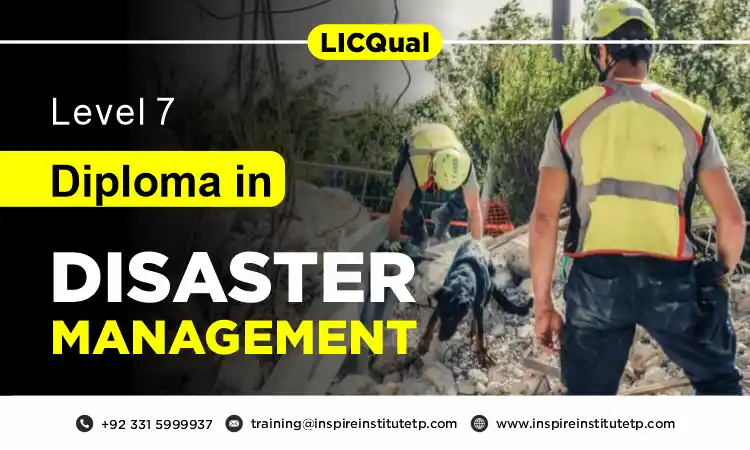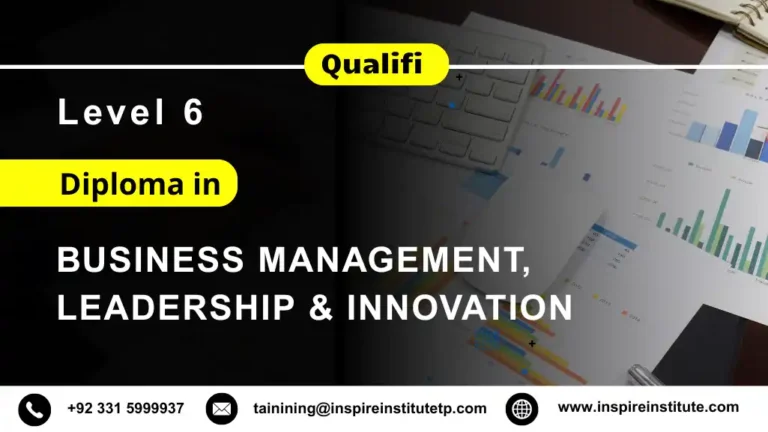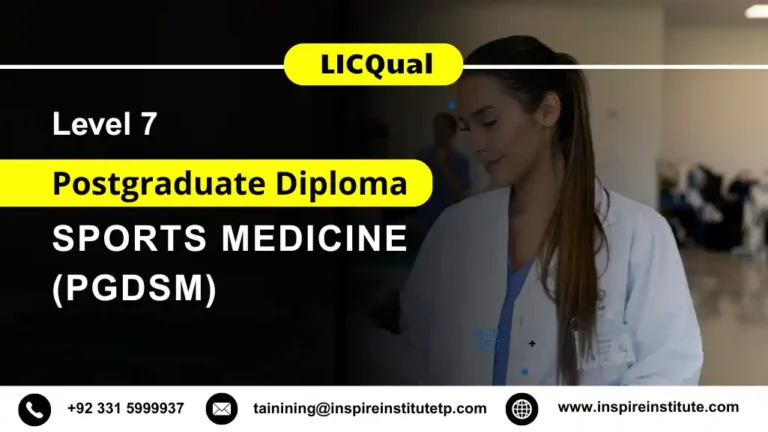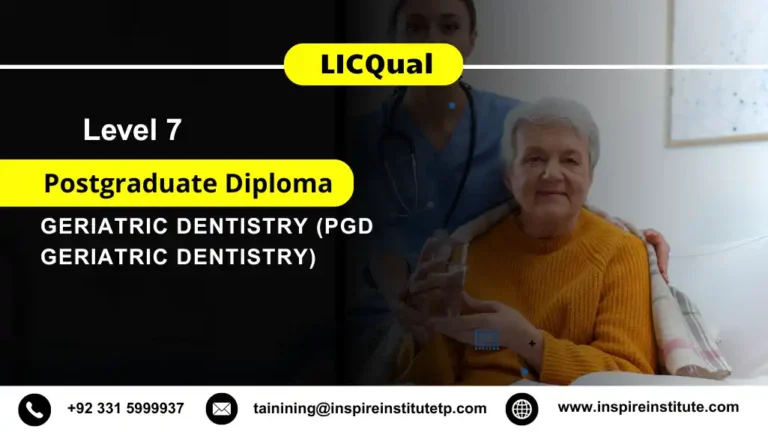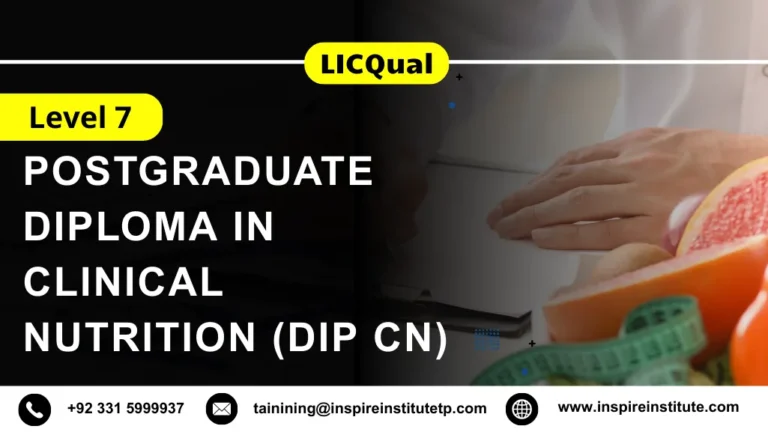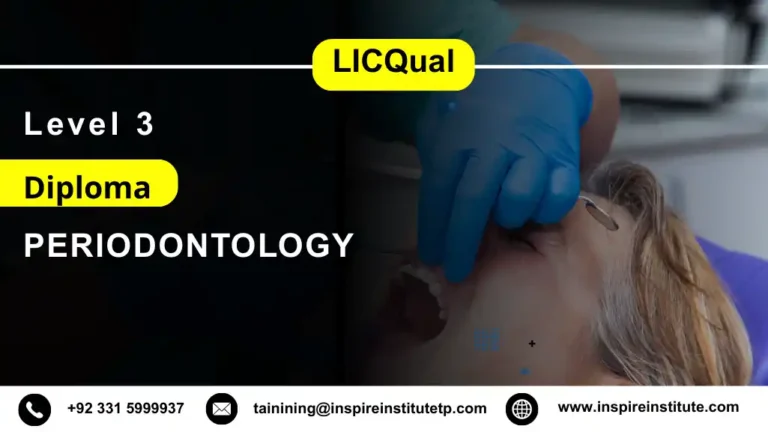LICQual Level 7 International Diploma in Disaster Management
Ideal for individuals working in humanitarian aid, government agencies, or non-profit organizations, this program combines theoretical insights with practical applications, preparing graduates to navigate the complexities of disaster situations. By completing this diploma, students position themselves as leaders in the field, ready to make a meaningful impact in crisis management and resilience building.
Why Choose this Qualification
Choosing the LICQual Level 7 International Diploma in Disaster Management offers several significant benefits:
- Advanced Expertise: This qualification provides in-depth knowledge of disaster management principles, strategies, and practices, equipping you with the skills needed to tackle complex emergencies effectively.
- Global Perspective: The course addresses disaster management on an international scale, preparing you to work in diverse contexts and understand the challenges faced by different regions.
- Career Advancement: Holding a Level 7 diploma enhances your credentials, making you a more competitive candidate for leadership roles in government agencies, NGOs, and international organizations.
- Practical Application: The program combines theoretical learning with real-world case studies, enabling you to apply your knowledge to actual disaster scenarios and improve your problem-solving skills.
- Networking Opportunities: Engage with industry professionals and fellow learners, expanding your network and learning from their experiences in disaster management.
- Contribution to Society: By gaining this qualification, you position yourself to make a meaningful impact in crisis situations, helping communities prepare for, respond to, and recover from disasters.
- Foundation for Further Education: This diploma can serve as a stepping stone to higher academic pursuits or specialized training in disaster risk reduction, humanitarian aid, or emergency management.
Overall, this qualification not only enhances your professional capabilities but also empowers you to contribute positively to global disaster resilience and community safety.
Course Overview
UK Based Qualification
Course Level: Level 7
Average Completion Time:
6-18 Months
Study Units: 11 Units
Evidence & Assignment Based
Qualification Structure
The LICQual Level 7 Postgraduate International Diploma in Disaster Management comprises 6 mandatory units making a combined total of 120 credits, 1200 hours Total Qualification Time (TQT) and 600 Guided Learning Hours (GLH) for the completed qualification.
Mandatory Units
Who Should Take This Course
The LICQual Level 7 International Diploma in Disaster Management is ideal for a diverse range of professionals, including:
- Emergency Management Practitioners: Individuals currently working in emergency management who seek to deepen their expertise and take on more strategic roles.
- Humanitarian Aid Workers: Professionals in NGOs or international organizations looking to enhance their skills in disaster response and recovery.
- Government Officials: Employees in local, regional, or national governments involved in disaster planning, response, and recovery efforts.
- Public Health Professionals: Those working in public health sectors who need to understand the health implications of disasters and how to manage them effectively.
- Environmental Scientists: Individuals focused on disaster risk reduction related to environmental issues, such as climate change or natural hazards.
- Business Continuity Planners: Professionals tasked with developing and implementing business continuity strategies in the face of potential disasters.
- Academics and Researchers: Those interested in pursuing research in disaster management or related fields who want to gain a comprehensive understanding of current practices.
- Students of Related Fields: Graduates from disciplines such as social sciences, environmental studies, or public administration who wish to specialize in disaster management.
This diploma is designed for anyone committed to improving disaster resilience and management, providing the skills and knowledge necessary to make a significant impact in the field.
Course Benefits
The LICQual Level 7 International Diploma in Disaster Management offers numerous benefits, including:
- Advanced Knowledge: Gain a deep understanding of disaster management theories, practices, and strategies, equipping you with the skills to address complex disaster scenarios effectively.
- Enhanced Career Opportunities: This qualification opens doors to leadership roles in various sectors, including government, NGOs, and international organizations, increasing your employability and advancement potential.
- Practical Skills Development: The program emphasizes real-world applications, allowing you to apply theoretical knowledge to practical situations through case studies and simulations.
- Global Perspective: Learn about disaster management on an international scale, preparing you to work in diverse environments and understand global challenges.
- Networking Opportunities: Connect with professionals and peers in the field, expanding your network and learning from their experiences and insights.
- Contribution to Community Resilience: Equip yourself to make a meaningful impact in disaster response and recovery efforts, enhancing the safety and resilience of communities.
- Foundation for Further Studies: This diploma serves as a stepping stone for advanced academic pursuits or specialized training in disaster risk reduction and emergency management.
- Interdisciplinary Approach: The course integrates knowledge from various fields, including public health, environmental science, and social policy, providing a holistic understanding of disaster management.
By pursuing this diploma, you not only enhance your professional capabilities but also position yourself to lead effective disaster management efforts that can save lives and support communities in times of crisis.
Eligibility Criteria
Learners must meet specific eligibility criteria:
Educational Background: Applicants typically should hold a Level 6 qualification (such as a bachelor’s degree) in environmental science, management, or a related field.
Work Experience: Relevant professional experience in environmental management or a related area is often required. This may include roles in sustainability, policy-making, or environmental consultancy.
Demonstrated Interest: A strong commitment to environmental issues and sustainability practices may be assessed through personal statements or interviews.
Professional Development: Candidates may benefit from additional qualifications or certifications in environmental management, sustainability, or related fields.
Language Proficiency: Non-native English speakers may need to demonstrate proficiency in English, typically through standardized tests or equivalent qualifications.
Access to Resources: Ability to access necessary materials and resources for study, including online platforms if applicable.
Commitment to Learning: A willingness to engage in intensive study and practical applications of environmental management principles.
The Qualification Process
Here is a step-by-step guide to help you understand the entire journey from pre-registration to certification:
- Self-Assessment:
Begin by evaluating your eligibility for the course. Ensure you meet the entry requirements, such as relevant qualifications or professional experience, as outlined for the program. - Registration:
Complete your registration by submitting the required documents, including a scanned copy of a valid ID, and pay the necessary registration fee. This is your first official step in the qualification process. - Induction:
An assessor will conduct an induction session to verify your eligibility and introduce you to the evidence requirements. During this stage:- If the assessor finds that you meet all the necessary criteria, you will proceed to the next step.
- If you do not meet the entry requirements, your registration will be canceled, and your fee will be refunded.
- Evidence Submission:
Based on the assessment criteria, you will need to submit evidence demonstrating your knowledge and competence. Consult with your assessor if you need clarification on the type and nature of the evidence required. This evidence could include assignments, projects, case studies, or professional experiences related to sustainability management. - Feedback and Revision:
The assessor will review your submitted evidence and provide feedback. Evidence that meets the required criteria will be marked as “criteria met.” If there are any gaps, the assessor will highlight them, and you will need to address those gaps by revising and resubmitting the evidence. - Competence Evidence:
Submit your final evidence demonstrating that you have successfully achieved all the learning outcomes. The assessor will mark your submission as “Criteria met” once everything is up to standard. - Internal Quality Assurance (IQA):
After your evidence is approved by the assessor, the Internal Quality Assurance Verifier (IQA) will review it to ensure that the assessment was carried out consistently and according to LICQual standards. - External Verification:
The IQA then presents your portfolio to LICQual External Quality Assurance Verifiers (EQA) for final confirmation. The EQA may contact you directly to verify the authenticity of your evidence. - Certification:
Once all internal and external checks are completed to satisfaction LICQual will issue your official certificate, confirming that you have successfully achieved the qualification.
This comprehensive process ensures that learners demonstrate all necessary competencies and meet the high standards required for the LICQual Level 7 International Diploma in Disaster Management.

